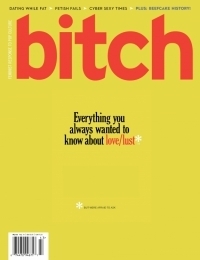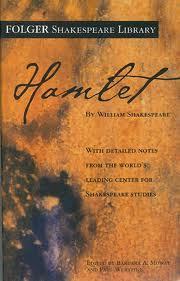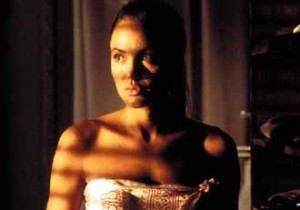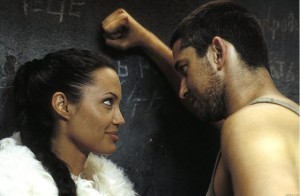Kate Larking's Blog: Anxiety Ink, page 61
October 2, 2014
Why Do You Write?
I’m sure the other girls have talked about this question, but I want to talk about it in terms of process. Every writer should ask themselves why they write because it impacts how you approach writing. (Hint: there’s no One True Way.)
Do you want to tell a good story above all? Chances are you approach writing plot-first. You may want to try outlining.
Do you write because you have something to say? You definitely want to try outlining to make sure what you’re writing says what you want it to.
What about if you have a character who won’t leave you alone? Do some prewriting to see who s/he is and what s/he is about, maybe, or try pantsing as a way to explore the character and find the story attached to him/her.
For me personally, I write because I don’t know what I want to say. I write to explore ideas and figure out what I think about things. So I tend to approach stories through themes. For a long time I would think I knew what I wanted to say and outline accordingly, but lately I’ve come to realize that’s not quite true–I write to give myself voice and figure out what. I’m trying to be less strict about the outlining as a result and have even written out of order, which has been freeing. In fact, I’m considering pantsing a project for Nanowrimo as an experiment!
Knowing yourself as a writer is super important for process but also for general issues like, what genre should I write? I love to read fast-paced commercial books, but I can’t write them to save my life. I get sidetracked by literary devices and deep questions of meaning because of how I approach writing at all. Yet I’ve still TRIED to plot fast-paced commercial books. And gnashed my teeth when they didn’t work out. I could’ve saved myself a lot of trouble.
I know this probably sounds really basic and “duh” but if you’re a new writer and don’t know where to start, or if you’re a more experienced writer who’s feeling stale and wants to try something new–it’s all about, as I said in my last post, intentionality.
The post Why Do You Write? appeared first on Anxiety Ink.
October 1, 2014
Writing Goals Checkup – 75% Done 2014
It’s October, everyone. OCTOBER. How can this be?! It came so quickly! So, it’s that quarterly time of the year where we look at our writing goals for 2014 and see how we are doing.
Let’s take a look at my writing goals, shall we?
Revise interWIRED and query – After replotting the book of doom, I’m fairly certain that querying will not happen this year. But I am still hopeful to complete what should be the querying draft by the end of the year.
Write 6 days a week – I did great over July Camp NaNo and into the beginning of August I was putting a lot of time in for publishing Novel Marketing I have plans to write heavily in October (a mini-to-full NaNo in October) and November (for the official NaNoWriMo).
Walk or work out 6 days a week – I did Ballet Barre all summer, taking in unlimited classes. But as summer came to an end and I started work again, my schedule has been a little off. But taking one ballet barre class per week, walking around downtown, and running to catch buses counts, right?
Submit a short story or freelance article a month – I did get a short story out this month, shockingly. Freelance has slowed down. However, if I count guest posts for Novel Marketing in here, I’m still on it!
Minimize book and magazine purchases - I have pretty much kicked the magazine habit. Which is empowering but sad at the same time. As for books, I haven’t read much so I haven’t purchased much. I think I bought 3 books over the summer? Which is me showing incredible restraint. I’m both excited and terrified for holiday gift cards because I’ll either never use them or go on an immediate binge. It’s up for debate.
In a new little category, I did publish the following items this quarter:
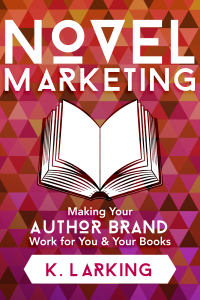
Novel Marketing: Making Your Author Brand Work for You & Your Books
Novel Marketing! My first book-length non-fiction project. This marketing book is different from most book marketing books that are based around non-fiction works. This one is specifically for fiction writers of all kinds! It doesn’t matter whether you are traditionally published, indie published, or self published–if your book is fiction, this is the marketing book for you.
Buy links:
Kobo
Kindle
Smashwords
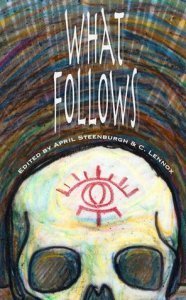
What Follows includes my short story “Silver Linings”.
Available now. Buy links:
Amazon
Smashwords
Barnes and Noble
Kobo
Goodreads
Love/Lust – Issue 64 | Fall 2014
I published an article in the fall issue of Bitch Magazine on erotica self-publishing. Available here.
The post Writing Goals Checkup – 75% Done 2014 appeared first on Anxiety Ink.
September 29, 2014
Goal Check-In #3!
It’s that time again…
What Follows has been released! Funny how I originally mentioned it in my goals post at the end of last year. Since then, it’s come full circle.
In travel:
Istanbul – accomplished!
ReaderCon – accomplished!
DC and World Fantasy – nearly there!
DC is rocketing towards us faster than I thought possible. At the same time, there is so much to separate now from then: I’m involved in another show (we just had our second rehearsal) and performances are the two weekends prior to the con, and I have to finish this novel. (28 chapters down, at least four more to go!)
In writing:
One novel down
Another novel nearly done
A short story written, edited, and now published in What Follows
A short piece to the Word Count Podcast. If you want to hear me read, click the link. I start around the 6:30 mark
Another short piece for a flash fiction challenge
While those last two don’t fall under the technical definition of a short story, they count as stories that are short. Once I finish the current novel, I want to take a month or two to focus on submitting some older short stories and on writing new short stories for submission. But once I finish the damn novel, I’ll have essentially made my original goal for the year.
In write-life balance:
Well, that’s shaken up again. Did I mention I’m in another show? Turn of the Screw. My first lead role ever. The line load is insane (there are only two actors in the show at all), I just got my script on Friday, and I have to be off-book – have it all memorized – in two weeks. And the character is . . . intense.
I’m terrified.
In the span of a single weekend, the show has taken over my life. To the extent that I even missed a writing group meeting for no good reason. I hate that I’m already slipping into flighty-artist mode, but there’s no way I’d give up the show.
In conclusion: this balance still needs work.
How are your goals for the year coming along?
The post Goal Check-In #3! appeared first on Anxiety Ink.
September 25, 2014
The Narrative Frame: Why We Pick Certain Boxes, Or Should
Depending on how well you know me, I am either about to declare or affirm the greatness of my dork nature…
A number of weekends ago I read Hamlet for the first time. I will do my best not to get into everything that made it as amazing as I hoped it would be. Yes, I read Shakespeare for fun and entertainment on my own. Yes, I read accompanying articles and sometimes look for more. Oh, and yes, I read the same play more than once because there’s no way you can possibly get everything out of them in one pass.
My head was whirling after finishing Hamlet so I turned to the accompanying essay because I wasn’t quite ready to let go yet. I think every student in Canada has been introduced to Shakespeare through the Folger’s Library during high school? Anyway, each play they put out comes complete with an academic article. Sometimes these articles make me yawn, sometimes I come away with an empty head, and occasionally I don’t even finish them.
“Hamlet: A Modern Perspective,” was one of the great ones. It made me miss school for a fraction of a minute. Part of the final paragraph resonated with me and I desperately want to share it. I was going to do my best to paraphrase the article, but I’d hack it to pieces, so here it is in full:
If there is a better story, one that would confer on the rough matter of life the consolations of form and significance, it is, the play tells us, one that cannot finally be told; for it exists on the other side of language, to be tantalizingly glimpsed only at the point when Hamlet is about to enter the domain of the inexpressible. The great and frustrating achievement of this play, its most ingenious and tormenting trick, the source of its endlessly belabored mystery, is to persuade us that such a story might exist, while demonstrating its irreducible hiddenness. The only story Hamlet is given is that of a hoary old revenge tragedy, which he persuades himself (and us) can never denote him truly; but it is a narrative frame that nothing (not even inaction) will allow him to escape. The story of our lives, the play wryly acknowledges, is always the wrong story; but the rest, after all, is silence. (Neill, Michael. “Hamlet: A Modern Perspective.” The Tragedy of Hamlet Prince of Denmark by William Shakespeare. Ed. Mowat, Barbara A., and Paul Werstine. Folger Shakespeare Library. 1992. P. 325.)
This excerpt gives me goose-bumps, and not just because Hamlet itself is a surprisingly chilling tale. It made me think about the frames we place our characters in as writers and the boxes we construct for our stories.
The first lessons of writing are know everything about your story, world, character, etc., while you show your readers only the most pertinent bits. That’s exactly what this article is saying Shakespeare does. Everything we learn about Hamlet as a child, student, adolescent, prince, lover, and grieving heir is constructed within the narrow window the play offers. He meets his father’s ghost, learns of this uncle’s betrayal and his mother’s lack of fidelity, and is given a mission. All of this turns him into a brooding, action-less hater of women.
He tells us that he’s more than this, that he wants to be more than this, but the play and his role in it don’t permit it. It’s absolutely fascinating. Had Shakespeare taken us to a different point in Hamlet’s life the story and its main character would be completely different. It might even be a comedy involving his romancing of Cordelia. It’s the unsaid, the not-shown, that makes this play so mysterious.
Of course, all this made me think about my own writing. Where do my stories start and WHY? What makes that particular instance in my characters’ lives so relevant that that is where the story should start? Why does the story end where it does? What does the frame of my character’s narrative do to them? What doesn’t it allow them to do? How does the narrative inform/shape my story? What kind of narration will better inform my story? What does the supporting cast, and their ability/inability to inform the reader do to the story at large?
The narrative frame of any story is key. There’s always talk of the inciting incident where the story really gets going but it has to be placed properly within the story’s frame. Character evolution is integral as well, yet it has to be framed well, too.
Honestly, you could take three people from the same story and tell that story from their respective perspectives and you’d have three completely different books. You could take just one of those characters and start the story at different stages of their life and, again, you’d have three different books.
The thing to take away from this excerpt and the points I’ve kind of beaten to death is this: as soon as you think of a character you want to write about, next think about the frame that will best tell the story you want to tell. Ask yourself the questions I’ve now taken to asking myself.
The post The Narrative Frame: Why We Pick Certain Boxes, Or Should appeared first on Anxiety Ink.
Starting Over: A Writing Opportunity
Okay, so this blog is about writing and anxiety, so I’m going to open up about the thing in my writing that gives me the most anxiety.
(Okay, I’m lying. There’s too many things that give me anxiety. But here’s one!)
I’ve been writing since 2005. I’ve written 10 novels in that time and am working on 11 and 12 right now. One of them got me an agent. That agent sold that book to an imprint at Penguin. Then my life crashed and burned, then my editor had a baby, and two years later we were still revising and both burnt out and wanting to move on. So Penguin pulled the book. In the meantime I found out some things about my agent that led me to part ways with her and found a new one.
I didn’t write for a year.
And now I feel like, in one way, I am lucky that things worked out the way they have. Because I get something few writers do: a second chance to start over. But it’s terrifying. I feel more pressure not to mess up this time, along with the lingering ghost of “what’s wrong with you that you lost your contract? people who got their book deals with you already have several books out and more on the way. What are you doing wrong? You must not be talented at all.”
There’s also the sense with starting over that you have backtracked a long way. Where before I felt like I was on top of my game–I had a hardcover book deal with a major publisher!–now I feel like I have nothing to show for all the work I’ve done.
So it makes me incredibly anxious, even as I recognize the opportunity. I’m doing everything I can not to waste it. I’m being much more intentional about my writing. I’m not just writing whatever idea strikes me; I’m thinking about how that fits with what else I write and what it could mean for my career to spend time working on this project. I focus primarily in speculative fiction, although different variants of it, for both teens and adults. I also have a STRONG historical fiction interest and am considering a penname for that work.
I’m allowing myself to try redoing my entire process. I started used Scrivener and LOVE it. I’m practically unable to write without word wars. I got an agenda and stickers to track progress. (Or rather, Kate gifted me with one for my birthday last week; thank you, darling!)
I keep reminding myself that I’m not in competition with anyone. Not even my former self. Every book is different for every writer. One book could come easily and the next is like pulling teeth. Not everything we write will be gold every time, no matter how much we edit it. In life this past year I’ve really tried to learn the lesson that I am allowed to be wrong (you’d be surprised how many people do not give themselves permission to be wrong!) and I’m still figuring out how to apply that to my writing.
Looking at being able to start over as a gift is one of those ways. Like, my first book didn’t work out but it’s okay. The thing is, there is so much about writing and publishing that is out of our control that trying to account for or take responsibility for all of it is the fastest track to burn-out, depression, anxiety and, frankly, failure. Successful people, it seems, recognize what they can’t control and stop wasting their energy on directions that don’t go anywhere. This allows them to focus more energy on the things they can control and produce better results. (Like, say, learning their craft or improving their marketing techniques.)
So what recent “failure” can you turn around? What energy do you need to redirect today?
The post Starting Over: A Writing Opportunity appeared first on Anxiety Ink.
September 24, 2014
What Follows Anthology
Are you prepared for this? Three of the four Inkettes are in a single anthology, What Follows!
What Follows

Available now on Kindle and Smashwords!
Summary:
How would an Immortal deal with the End Times?
The world will inevitably come stumbling into apocalypse, and They will be there to witness it. Dryads, demi-gods, deities of every pantheon- is it possible for the Eternal to handle an ending with grace?
Should it come through disease, disaster, or religious fervor, discover What Follows…
This anthology includes:
E. V. O’Day’s story “A New End”
Kate Larking’s story “Silver Linings”
M. J. King’s story “Ice and Fire”
You can get your copy today on Kindle! And Smashwords! Other eretailers are on their way as well as a print-on-demand version!
The post What Follows Anthology appeared first on Anxiety Ink.
Stress Writing – Writing Stress
Stress is an odd creature. A lot of the time, when people mention stress, they think of this toxic pressure, almost embodied by the cartoon cold bugs people draw: an unhappy shade of green, burr-like texture that sticks to people, and a malicious grin lined with pointed teeth.

But when it comes to the creative process, there is a certain importance of stress for writers.
Deadlines – This is a big one. A lot of writers will never finish certain projects if they were given the choice. They could polish sentences for weeks, months–YEARS. Alter a character, see how it works. Change the point of view, see how it works. There are so many possibilities with every blank page that the writer may be paralyzed into inaction.I know because I’ve been there.Deadlines, set either by submission guidelines, commitments to editors/friends/beta readers, or even set by the writer herself, are one type of stress that spur projects toward completion. Without deadlines, we could all dilly-dally and never finish anything. But just setting a date, even one that seems far away, brings focus to the creative piece and the time it needs to be completed.
Life stress – For those who know me, I have spent almost 9 months working as a full-time writer. When I first left my job, I thought that for sure this would be an excellent opportunity for me to dedicate lengthy spans of time to my writing while also completing some freelance projects on the side.The reality turned into something much different. Staying at home and writing did not make every day perfect. It built a bit of a mundane reality around me and offered me little stimulation. Without much human interaction or time consumed by other commitments, concentrating on my writing became difficult, even with deadlines set. I would dismiss wasted days where I didn’t abide to a schedule as needed, looking at the generous number of days I had left to complete something. When I was in the writing zone, I would max out at a certain level of output each day, frustrated that my mental stamina couldn’t keep up with my desired output and time available.
Situational stress – The main thing I noticed in my full-time writership was that my brain relaxed. While it was nice to not be as frazzled or forgetful, I became less skilled at connecting ideas, concepts, and themes. I would build a world but would not get the “eureka” moment I needed in order to bring the story and concept together in a way that was novel and magical.For example, I had a small breakthrough on my planned NaNoWriMo story a week ago. I had thought that the story would be another iteration of the plot I had outlined but, with an errant thought, a new and better story came together–all while walking downtown at bright-and-early o’clock on the first day of my current contract work. The stress of the job, needing to be on time, unsure of an address and if the bus had dropped me off close enough–it all worked together to twist my mind around my preoccupation of what my outline arch should be into what would be even better.
These facts really stuck me about writing stress and how stress is required for writing. What about you? Do you write for the path of least resistance or do you need a little push and pull, too?
The post Stress Writing – Writing Stress appeared first on Anxiety Ink.
September 23, 2014
Stop Making Excuses; Start Publishing

Clare C. Marshall grew up in rural Nova Scotia with very little television and dial up internet, and yet, she turned out okay. She has a combined honours degree in journalism and psychology from the University of King’s College, and is a graduate from Humber College’s Creative Book Publishing Program. She is a full-time freelance editor, book designer, and web manager. She has been publishing books since 2011. When she’s not writing, she enjoys playing the fiddle and making silly noises at cats.Today, she is guest posting at Anxiety Ink!
Clare’s Post:
I have never not been a writer, and writing hundreds of thousands of words doesn’t scare me.
I guess publishing my own books never really scared me either. Probably my greatest publishing-related fear before I started publishing was that my books would not be well received; that people would consider them non-books and not recognize the work and time I have put into them.
Now that I’ve published four books, and proven that I can produce a good product, the actual act of bringing a book into the world is not scary at all. It’s still lots of work, to be sure. Most of my anxiety now, three years into Faery Ink Press seriously existing as a publisher, revolves around other undertakings done in her name. Like organizing and carrying out a crowdfunding campaign for my upcoming book, The Silver Spear.
But how did I overcome my fear of publishing–of making waves in the publishing community?
Usually the excitement of the project outweighs the fear of jumping into the deep end. At least, at first.
Sometimes we’re afraid to do the thing we want to do the most, and we put it up on a pedestal. We make excuses about why it’s up there: It’s not the right time, I don’t have all my research done, It’s not ready for the world to see, I haven’t worked on it in a while and it probably sucks. If you find yourself making these excuses over and over to yourself, that’s your mind trying to tell you to get off your butt and make something happen.
Here’s the pep talk I give myself when my nerves try to get the better of me:
It’s not the right time.
When is the right time? Sure, trends come and go. Especially in the book world. But trends can be circular. Missing the vampire craze is not the end of the world–there are readers out there who will like vampires for the rest of their lives. You will just have to work a little harder to find them.
We only live for 80-100 years. Do you want to be the person on their deathbed regretting you never gave your publishing dream a shot? I sure don’t. What if you died next week? What are you leaving behind that represents you? The right time to publish is now.
I don’t have all my research done.
Why the hell not? Probably because you’re too busy fantasizing about being a rich and famous author, right? Step one: sit yourself down at the computer. Step two: open your internet browser. Step three: Google what you want to know and read everything you can get your paws on. Step four: Rinse and repeat until you feel the information soaking into your soul and you feel confident enough to continue.
It’s not ready for the world to see.
Why, and according to whom? Maybe your work needs another editing pass, fine. But it probably doesn’t need ten, unless your writing is truly messy and untested.
Did someone tell you your work was bad? What do they know–are they experts? If not, ignore and plow through. If they are–what is their advice, and does it ring true? Make changes and then plow through.
I haven’t worked on it in a while and it probably sucks.
Putting time between you and the project can sometimes give you a fresh perspective. However the more time you put between you and your project, the harder it is to return to that project. The fear begins to return. I haven’t worked on it, how can I work on it now when I haven’t in so long?
Baby steps. I like to return to a project late at night, when I’m alone. I open the document and read through it, assuring myself that I don’t have to work on it much tonight, I’m just going over it. This small step is usually enough to bridge the gap between the timid girl inside me who is afraid to jump back into the fray. Ideas usually come to me late at night in the safety of the dark and the quiet, and the excitement I once felt for the project flows back into my spirit once more.
Any kind of project can be difficult. You’re not going to wake up one day and have “made it.” There is no magical movie montage that will take you from point A to point B. You have to be awake and aware for each pinpoint of existence between points A and B. Excruciating, isn’t it? It can be. If you allow your fears and doubts to control you. If you forget why you wanted to achieve your dreams in the first place.
If you’ve ever had any of the above excuses, give yourself my pep talk. Because every day you put off realizing your publishing dream because of fear is another victory for the fear within you. You don’t want fear to win, do you?
I sure don’t.
So stop making excuses.
Just dive in.
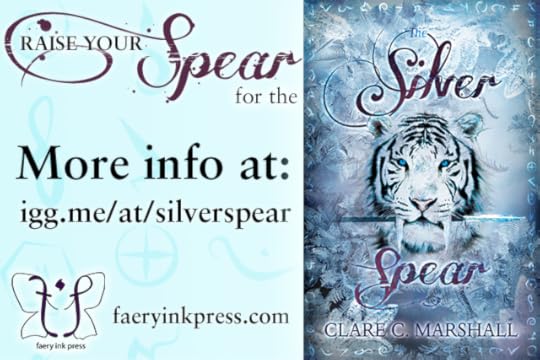
Click to take a look at Clare’s crowdfunding campaign!
The post Stop Making Excuses; Start Publishing appeared first on Anxiety Ink.
September 22, 2014
Friendship Is Magic
This writing thing is tricky business. When I’m stuck, it’s like a roulette wheel of problems:
Am I stuck because my characters did something out of character? This has to be fixed before I can keep going, or I’ll just wedge myself deeper in the same rut.
Have I just not planned this part well enough? The most common problem, and mostly just requires an application of Butt In Chair.
Am I bored? If I’m bored, everyone else will be, too. Not enough is happening. I can speed up events, jump to the next part, or add in something I never knew the story desperately needs.
Or am I just intimidated by this? Intimidation is harder to overcome, but it most often comes from losing track of my map. It goes back to a lack of planning.
And sometimes the looming, hulking specter of “I don’t know!” is all I can see. I know I can push through it, but knowing and doing are very different things.
This is one place where having writer friends is priceless. I was stuck on the cusp of the end (I talked about it last week) and spent four days on a single, measly paragraph.
Four days.
I can (generally) write a chapter in four days. (Yes, I’m slow.) With at least six chapters left to go and oncoming deadlines ready to crush me*, I couldn’t afford four days for a page, let alone a paragraph.
My few local writer friends are terribly busy people. Long distance write-ins usually offer more distraction than help, with a screen in front of my face. But one friends had come up from New York to visit family, and I stole her for a bit.
We sat down. I wrote a page beyond that damn paragraph, then I planned out the next three chapters. The next day I wrote five pages. In the week since, I’ve written two chapters.
This is kind of amazing for me.
There is something magical about people being creative in a shared space. Plus, there’s greater accountability when someone can look up and remind you that a flash game won’t count towards world goals.
If another writer isn’t handy, reach out to anyone artistic or creative. The shared energy is awesome. When I’m really stuck, that will usually boost me over the hurdle.
*Seriously. I have given myself four weeks to finish this draft, and I have at least five chapters left to go, as of the writing of this post, at an average of one chapter a week. Also, I’m about to lose a whole lot more writing time to another play. Go me?
The post Friendship Is Magic appeared first on Anxiety Ink.
September 18, 2014
I Love You Lara Croft, But I Don’t Want My Female Characters to Be Like You
Lara Croft Tomb Raider: Cradle of Life came on TV the other night, and because it was Friday and TV sucks on Friday, my parents and I watched it. And because it’s awesomely entertaining. The first Lara Croft movie came out in 2001 when I was 10 years old and I LOVED it. I have always been drawn to action movies and shows, probably because of my dad and brother, and Lara seemed liked the best of both worlds to my 10 year old mind. She was a girl who bossed around every man on screen and she kicked ass.
I was 12 when the sequel came out, and loved it too. Not just because Gerard Butler was in it. And not just because when his character was introduced he was doing uber manly pullups while holding himself upside down on a grated ceiling. Gerard Butler aside, this movie didn’t have quite the same resonance with my present-day self.
I’ll skip the physical focus because that’s a different post entirely and not my major problem with the movies. Offhand I will mention that I can tell these movies were geared towards a male audience not only because of the flash of guns, cool tech toys, and adventures, but because Lara is the “ideal” action woman. She’s thin, strong, gorgeous, has long hair that never seems to get in her way, and she has large breasts –even Angelina Jolie thought that last part was ridiculous, she hated wearing the prosthetics the directors made her wear.
Those unrealistic beauty standards aside, I’ve discovered I have a real problem with Lara’s characterization. Yes, she’s incredibly capable with all kinds of weapons and fighting techniques, she has seduction skills Mata Hari would kill for, she takes names and gets even, she’s loyal –she’s all around awesome. With a whopping side of conflicting virginal symbolism.
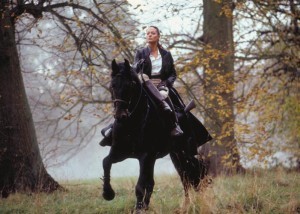
Note how she’s sitting side-saddle like a “proper” English-woman.
Hear me out. In Lara Croft: Tomb Raider, two conflicting scenes spring to mind. There’s the one where Lara’s house is broken into near the beginning of the movie and she manages to kill all of the intruders with her gymnastic routine without ruining her dark-grey pajamas. This is Lara’s strong female persona, the one usually dressed in black to match her black weapon holders (above). Contrast this to the end of the film where Lara walks demurely out of her house dressed in a white dress and a wide-brimmed hat to shield her skin from the sun. This is her virginal mistress of the manor persona. And it’s not lost on me that she puts on this role when she goes to visit the grave of her father.
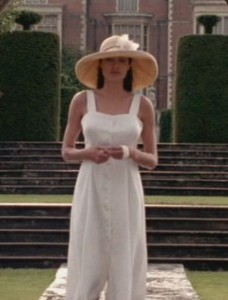
In Cradle of Life, we’re presented with a lot of the same imagery. Lara nearly seduces Terry in order to find out if he’s betrayed her –she’s wearing nothing but a white towel while doing so. In fact, in many of the shots with Lara and Terry as a pair she’s wearing a rather large piece of white clothing. Yet when she’s alone, or with the other men in the story, she’s wearing her trademark black. We even learn that the two had a physical relationship for 5 months before Terry ended up in prison; one Lara will not rekindle despite his best efforts.
I find it exceedingly problematic that Lara can turn her sexuality on and off when it’s convenient, but only because that’s what the male gaze wants. Not her. She’s eye candy from start to finish but she’s not allowed to have sex. Her sexuality is a tool she doesn’t wield. Her body is a well-oiled machine that she can get to do lots of incredible feats. Really, she can control her body in every which way but one. I don’t like that.
Furthermore, attempts to make her seem sympathetic are half-assed. Going on crusades to follow in daddy’s foot steps are all well and good, but does Lara have any other reason for doing or being what she is? I could be misremembering, but did she ever have a dream for herself? Or was she convinced this was her dream/destiny from infancy?
Then there’s her supporting cast: Bryce and Hillary. Considering Lara’s intellect and capabilities I don’t really know why these two men are that relevant in her life. Still, the movies make it painstakingly clear that she cannot function without them. I want to say it’s a positive that it takes two men to balance her out even with the male lead acting as her foil, but I can’t give the movies that much credit.
What I’m trying to boil this all down to is this: I want my female characters to be as strong and capable in their respective careers as Lara, and I want them to make mistakes like she does. However, I want my women to be multidimensional and seen as more than fetish objects. I want them to have their own dreams and aspirations. I want them to be free to do what they want with their bodies. I don’t want them to be the sexy vixen/virginal goddess that Lara Croft’s narrative frame turned her into. They deserve more, and so does Lara, frankly.
I think it’s ironic that Daniel Craig is in the first movie and then he goes on to take up the James Bond persona in the newest installments. Why? Because both Bond and Croft are bodies, not people. Yeah, Lara has more back-story and is presented as a real person but she’s just a fantasy. What I don’t think is ironic is that James gets to have sex with every breathing female who crosses his path whereas Lara is expected to look the other way from any man she isn’t trying to gun down.
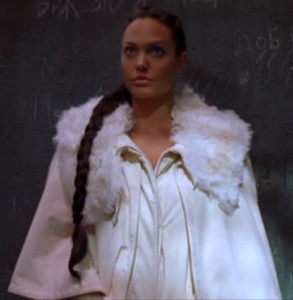
The white coat Lara wears in Cradle of Life
PS. Kate showed me an awesome twitter rant by Gail Simone about how men should be insulted by female characters like Lara – I paraphrased the Lara part, fyi! I urge you to go find it.
PPS. Going through Google images of Lara Croft was fascinating, and proved my points as far as I’m concerned.
The post I Love You Lara Croft, But I Don’t Want My Female Characters to Be Like You appeared first on Anxiety Ink.
Anxiety Ink
- Kate Larking's profile
- 53 followers


